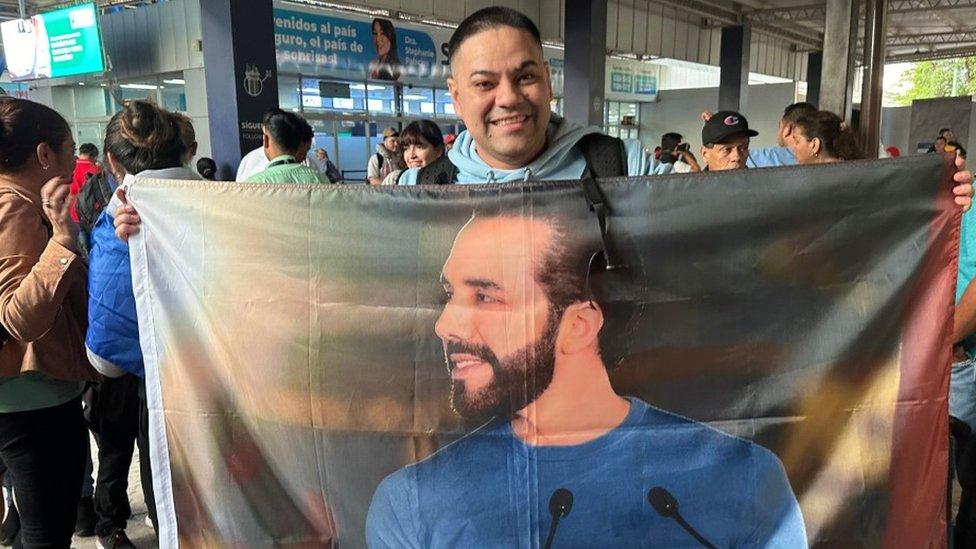El Salvador election: Nayib Bukele revels in landslide win
- Published
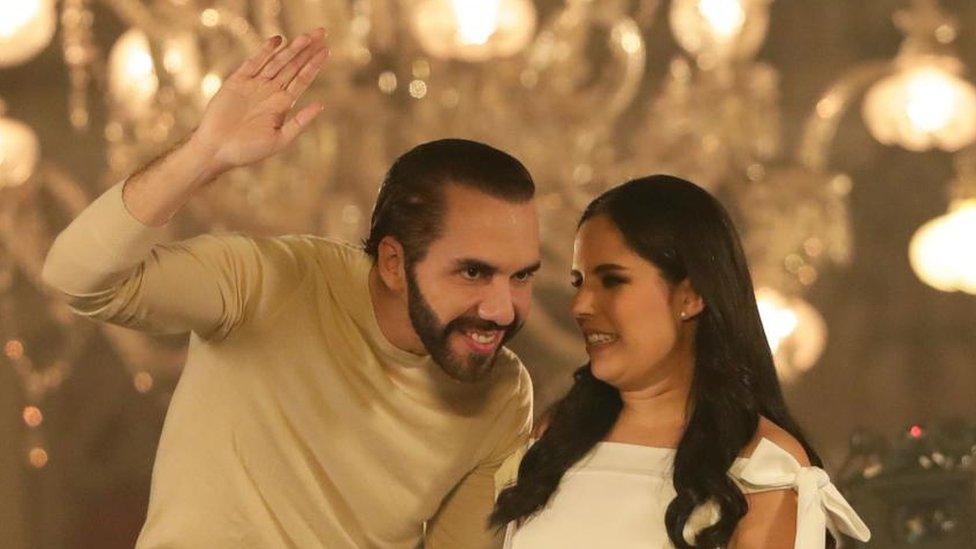
Nayib Bukele waves to a jubilant crowd
Standing on the balcony of the National Palace in the capital, Salvadorean President Nayib Bukele, was understandably jubilant.
"This is the victory with the biggest difference between first and second place in history," he claimed of Sunday's presidential election which has seen him re-elected to a second term in office by an overwhelming lead.
"The opposition has been pulverised," the 42-year-old told the assembled crowd amid the deafening sound of cheers and horns.
While the final result is still to confirm if he has indeed taken near-total control of the legislative assembly, there is no doubt that this was a landslide and, as he sees it, a total vindication of the controversial policies of his first term.
In fact, one of the crowd's loudest cheers went up when he mentioned "the state of exception", the emergency measures he introduced in March 2022 granting draconian powers to the police and military to fight El Salvador's gangs.
The electorate roundly voted for a continuation of the security plan which has brought such a radical change to the Central American nation.
More than 75,000 people have been arrested under the policy in just under two years, but entire communities have been freed from an asphyxiating degree of gang control.
"Before we couldn't move around easily, through fear of being physically hurt," voter Vilma Abrego told me at a polling station in Quetzaltepeque, outside San Salvador, after she cast her ballot.
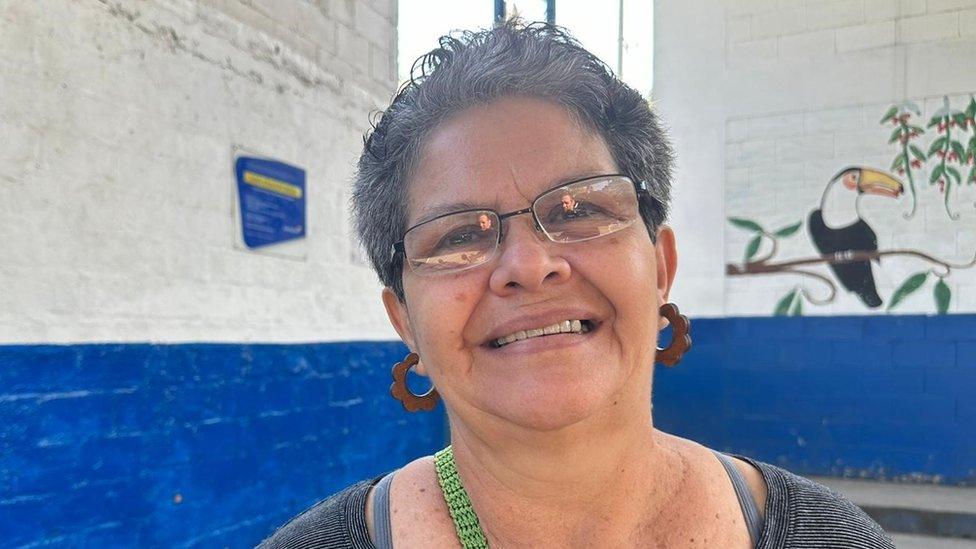
Vilma Abrego says she feels much safer
"If you went somewhere new, you didn't know if you'd come out alive. But now we have this president who is governing in the way that God intends."
After casting his own vote, President Bukele held a news conference in the capital.
I asked him if, now that he had turned the security situation around, he would concentrate on the next stage of the security policy - specifically the legal process of the thousands of people with no gang affiliation who, according to human rights organisations, have been unlawfully jailed.
"I find it somewhat amusing when people say 'Oh, in El Salvador, they arrest people and some of the arrested are innocent,'" President Bukele said.
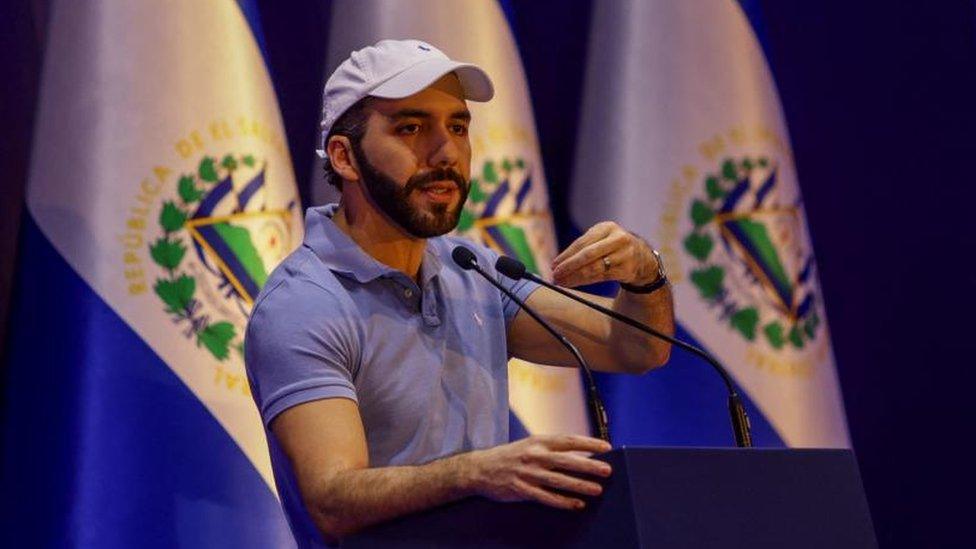
Nayib Bukele said his policies worked for El Salvador, unlike those suggested by the EU, the US and the OAS
"I'm a little baffled because I wonder if in the UK all of the arrests are of guilty people or if sometimes your police arrest innocent ones?," he continued.
He conceded that police in El Salvador had made "a couple of mistakes" but said that some 7,000 of those arrested had already been released.
There followed a long answer in which Mr Bukele argued that he was applying a unique solution to El Salvador's unique problem of having long been the murder capital of the world.
Furthermore, he added, El Salvador had tried countless solutions put forward by Washington, the European Union and the Organization of American States but none of them had worked. The answer, he said, was his policy.
"El Salvador was turned from the most dangerous place in the world to the safest in the Western Hemisphere. That's not a small feat. That's not done easily. No-one in the world has done it before so fast and so clean as we've done it here with no civilian casualties."
The president of El Salvador is likely to remain in an ebullient mood for some time.
If his party's predictions are borne out by the official figures, they will have all but two seats in the National Assembly.
All the talk on Salvadorean radio and TV news networks is of a "single-party state" but one, President Bukele is at pains to underline, that has been elected by the people at the ballot box.
Many expect him to use that support to justify his policies in his second term.
He and his plans for the nation have popular backing - his supporters say any suggestion to the contrary is to wilfully ignore the reality in the impoverished neighbourhoods and countryside of this long-conflicted country.
Nevertheless, despite his huge margin of victory, there were still some dissenting voices on the ground.
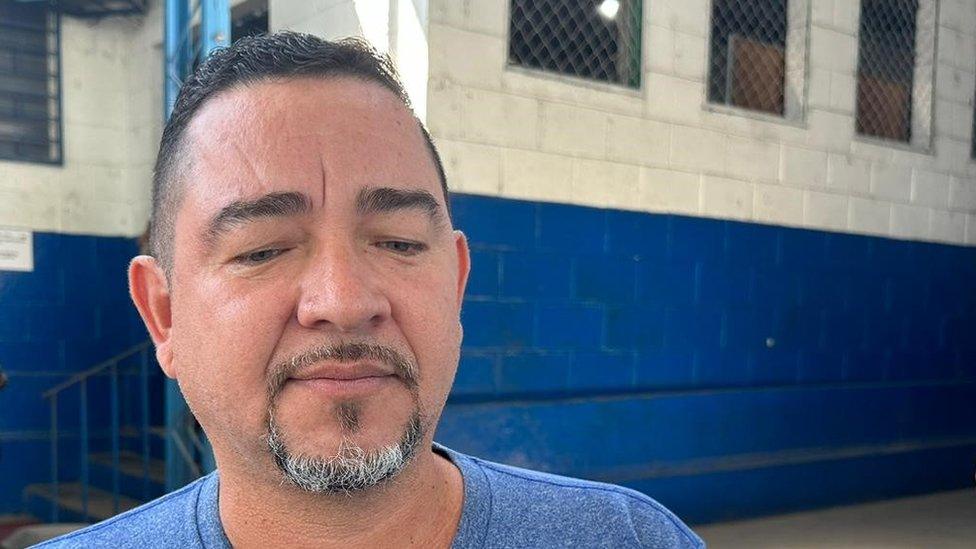
Franklin Ramos did not want to see Mr Bukele win a second term
"In a democracy, I'm not sure about all these things the president's been doing in his first term" said Franklin Ramos in Quetzaltepeque, specifically referring to those who had been unjustly arrested.
"I don't want him to have a second term," he insisted, also questioning the decision by the country's top court to let the president run for re-election, even though back-to-back terms are banned under El Salvador's constitution.
"It's unconstitutional, he'll be an unconstitutional president."
A huge number of his countrymen and women thoroughly disagree and they have handed Nayib Bukele a victory which most other leaders in the Americas can only dream of while they watch on with envy.
Related topics
- Published4 February 2024
